Related Research Articles
MammaPrint is a prognostic and predictive diagnostic test for early stage breast cancer patients that assess the risk that a tumor will metastasize to other parts of the body. It gives a binary result, high-risk or low-risk classification, and helps physicians determine whether or not a patient will benefit from chemotherapy. Women with a low risk result can safely forego chemotherapy without decreasing likelihood of disease free survival. MammaPrint is part of the personalized medicine portfolio marketed by Agendia.

Lapatinib (INN), used in the form of lapatinib ditosylate (USAN) is an orally active drug for breast cancer and other solid tumours. It is a dual tyrosine kinase inhibitor which interrupts the HER2/neu and epidermal growth factor receptor (EGFR) pathways. It is used in combination therapy for HER2-positive breast cancer. It is used for the treatment of patients with advanced or metastatic breast cancer whose tumors overexpress HER2 (ErbB2).

Emil "Tom" Frei III was an American physician and oncologist. He was the former director and former physician-in-chief of the Dana–Farber Cancer Institute in Boston, Massachusetts. He was also the Richard and Susan Smith Distinguished Professor of Medicine at Harvard Medical School.

Josep Baselga i Torres, known in Spanish as José Baselga, was a Spanish medical oncologist and researcher focused on the development of novel molecular targeted agents, with a special emphasis in breast cancer. Through his career he was associated with the Memorial Sloan Kettering Cancer Center, Vall d'Hebron Institute of Oncology, and the Massachusetts General Hospital in their hematology and oncology divisions. He led the development of the breast cancer treatment Herceptin, a monoclonal antibody, that targets the HER2 protein, which is impacted in aggressive breast cancers.
James Lewis Abbruzzese is the Chief of the Duke Division of Medical Oncology and associate director for Clinical Research for the Duke Cancer Institute. Previously, Abbruzzese was Chairman of the Department of Gastrointestinal Medical Oncology at the University of Texas M. D. Anderson Cancer Center where he held the M. G. and Lillie A. Johnson Chair for Cancer Treatment and Research and the Annie Laurie Howard Research Distinguished Professorship. Abbruzzese is one of the world's leaders in the clinical study and treatment of pancreatic cancer.
Breast cancer management takes different approaches depending on physical and biological characteristics of the disease, as well as the age, over-all health and personal preferences of the patient. Treatment types can be classified into local therapy and systemic treatment. Local therapy is most efficacious in early stage breast cancer, while systemic therapy is generally justified in advanced and metastatic disease, or in diseases with specific phenotypes.
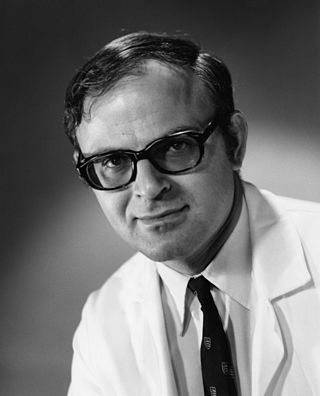
George P. Canellos is an American oncologist and cancer researcher. His research career spans many decades, as well as several areas of therapeutic agents for the treatment of malignant diseases. He is perhaps most known for his work with Vincent T. DeVita in which he developed the combination chemotherapy CMF, which was one of the first combination therapies for breast cancer. The two also collaborated to create the MOPP regimen for Hodgkin's lymphoma.

David B. Agus is an American physician, cancer researcher and author who serves as a professor of medicine and engineering at the University of Southern California Keck School of Medicine and Viterbi School of Engineering and the Founding Director and CEO of the Lawrence J. Ellison Institute for Transformative Medicine. He is also the cofounder of several personalized medicine companies and a contributor to CBS News on health topics. He is also the author of four books.
High-dose chemotherapy and bone marrow transplant (HDC/BMT), also high-dose chemotherapy with autologous bone marrow transplant, was an ineffective treatment regimen for metastatic breast cancer, and later high-risk breast cancer, that was considered promising during the 1980s and 1990s. With an overall idea that more is better, this process involved taking cells from the person's bone marrow to store in a lab, then to give such high doses of chemotherapy drugs that the remaining bone marrow was destroyed, and then to inject the cells taken earlier back into the body as replacement. It was ultimately determined to be no more effective than normal treatment, and to have significantly higher side effects, including treatment-related death.
Kathleen I. Pritchard, is the head of oncology at Sunnybrook Health Sciences Centre in Toronto, Canada, specializing in breast cancer therapies, and leading the clinical trials division of the centre. She has authored numerous studies on women's health, breast cancer, hormone replacement therapy, public health, and research methodology. According to Thomson Reuters, Pritchard was one of the most cited researchers in the world in 2014 and 2015.

Sandra M. Swain is an American oncologist, breast cancer specialist and clinical translational researcher. She is currently a professor of Medicine at the Georgetown University School of Medicine and the Associate Dean for Research Development at Georgetown University Medical Center (GUMC) and MedStar Health as well as an adjunct professor of Medicine at the F. Edward Hébert School of Medicine of the Uniformed Services University of Health Sciences. She is also a past President of the American Society of Clinical Oncology (ASCO), serving from 2012 through 2013.
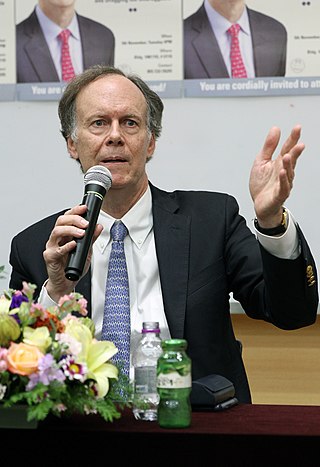
William G. Kaelin Jr. is an American Nobel laureate physician-scientist. He is a professor of medicine at Harvard University and the Dana–Farber Cancer Institute. His laboratory studies tumor suppressor proteins. In 2016, Kaelin received the Albert Lasker Award for Basic Medical Research and the AACR Princess Takamatsu Award. He also won the Nobel Prize in Physiology or Medicine in 2019 along with Peter J. Ratcliffe and Gregg L. Semenza.
Judy Ellen Garber is the director of the Center for Cancer Genetics and Prevention at the Dana–Farber Cancer Institute and a professor of medicine at Harvard Medical School. Garber previously served as president of the American Association for Cancer Research.
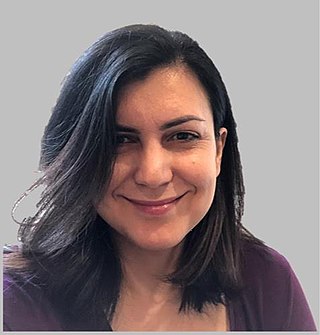
Maryam Beheshti Lustberg is an American breast oncologist. She is the Director of The Breast Center at Smilow Cancer Hospital and Chief of Breast Medical Oncology at Yale Cancer Center. Lustberg previously served as the Medical Director of Supportive Care at Ohio State's Comprehensive Cancer Center and President-Elect of the Multinational Association of Supportive Care in Cancer. She is also an associate editor for the peer-reviewed medical journal covering oncology nursing with respect to cancer survivors called Journal of Cancer Survivorship.
Ann Hart Partridge is an American medical oncologist. She is the founder and director of the Young and Strong Program for Young Women with Breast Cancer at the Susan F. Smith Center for Women's Cancers at the Dana–Farber Cancer Institute.
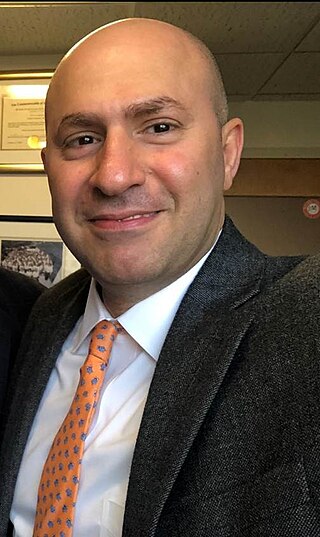
Toni K. Choueiri is a Lebanese American medical oncologist and researcher. He is the Jerome and Nancy Kohlberg Professor of Medicine at Harvard Medical School and Director of the Lank Center for Genitourinary Oncology at the Dana–Farber Cancer Institute. His work has led to the establishment of several novel drugs and prognostic factors in advanced renal cell carcinoma (RCC). Choueiri also co-established the International metastatic database Consortium with Daniel Heng. His biomarker work has shed light on complex immunogenomics mechanisms contributing to response and resistance to targeted therapy and immunotherapy.
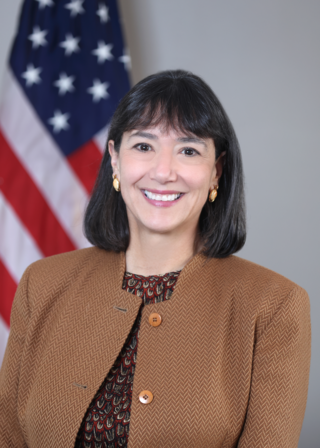
Monica Bertagnolli is an American surgical oncologist and the 16th director of the National Cancer Institute. Previously, she worked at Brigham and Women's Hospital and Dana–Farber Cancer Institute and was the Richard E. Wilson Professor of Surgery at Harvard Medical School. She has advocated for inclusion of rural communities in clinical studies and served as Chair of the Alliance for Clinical Trials in Oncology until her appointment to lead NCI. Bertagnolli specializes in the treatment of tumors from gastrointestinal diseases and soft tissue sarcomas. She is the former President of the American Society of Clinical Oncology and was elected Fellow of the National Academy of Medicine in 2021. In 2023, President Biden nominated Bertagnolli to serve as the director of the National Institutes of Health. If confirmed, she would be the second woman director of the NIH.
Beth Ann Overmoyer is an American physician and oncologist. She is Director of the Inflammatory Breast Cancer Program at the Dana–Farber Cancer Institute.
Nancy Lin is an American oncologist who works at the Dana-Farber Cancer Institute and is an Associate Professor of Medicine at Harvard Medical School. Her research considers new diagnostic strategies and treatment pathways for HER2 positive breast cancer.
Xavier Pivot is a French oncologist, university professor, breast cancer specialist and general director of the Strasbourg Cancer Institute. He is best known for his research on treatments with trastuzumab in HER2-positive breast cancers.
References
- ↑ "Eric P. Winer to lead Yale Cancer Center and Smilow Cancer Hospital".
- ↑ "Breast Cancer: When is Less Treatment Better?". blog.dana-farber.org. 3 March 2017. Retrieved 2017-04-13.
- ↑ "Aspirin in Preventing Recurrence of Cancer in Patients With Node Positive HER2 Negative Stage II-III Breast Cancer After Chemotherapy, Surgery, and/or Radiation Therapy". clinicaltrials.gov. Retrieved 2017-04-13.
- ↑ "PubMed Search Results". www.ncbi.nlm.nih.gov. Retrieved 2017-04-13.
- ↑ "Fellow of the American Society of Clinical Oncology Award Recipients". www.asco.org. Retrieved 2017-04-25.
- ↑ "A. Clifford Barger Excellence in Mentoring Award Recipients". mfdp.med.harvard.edu. Retrieved 2017-04-13.
- ↑ "Symposium Overview". www.sabcs.org. Retrieved 2017-04-13.
- ↑ "ASCO Honors Researchers, Scientists for Significant Advances in Cancer Treatment and Care". connection.asco.org. 14 March 2017. Retrieved 2017-04-13.